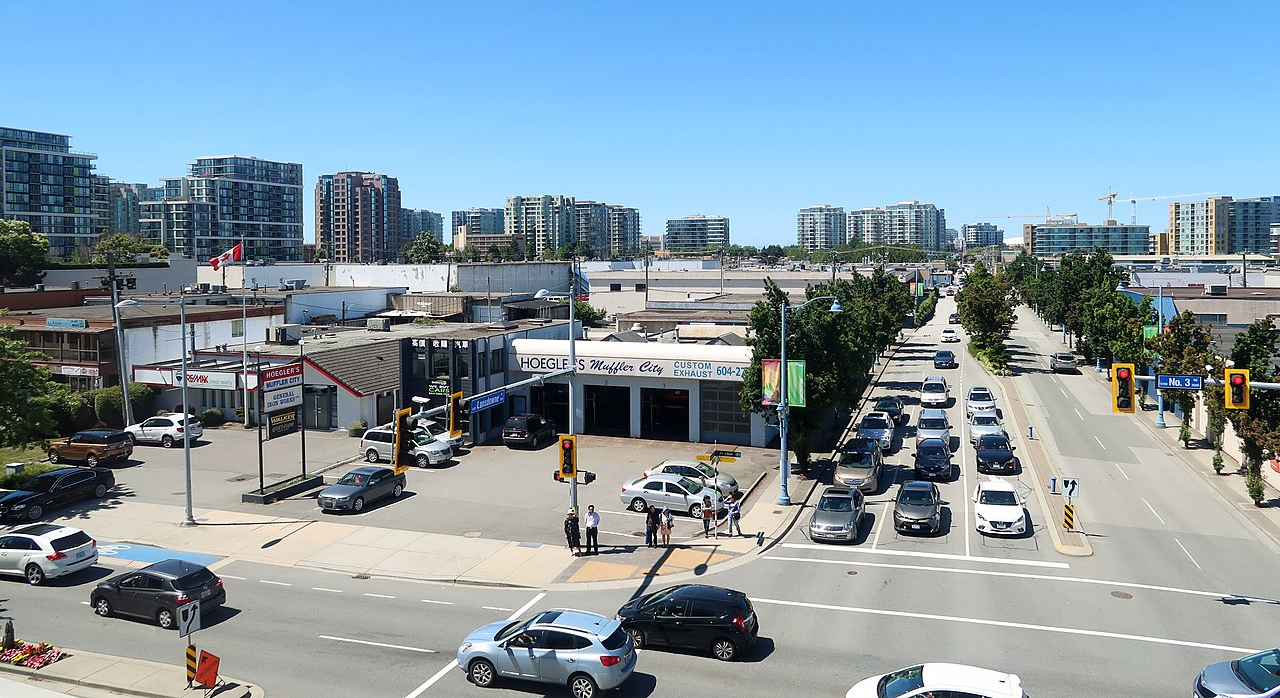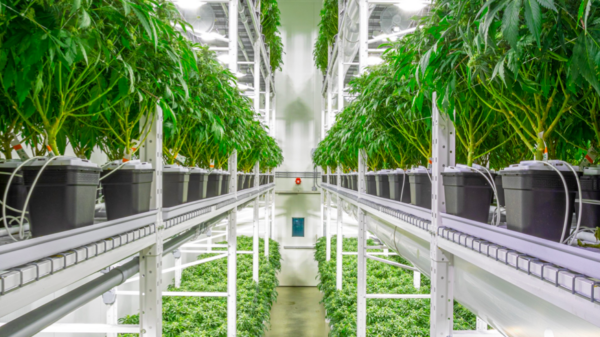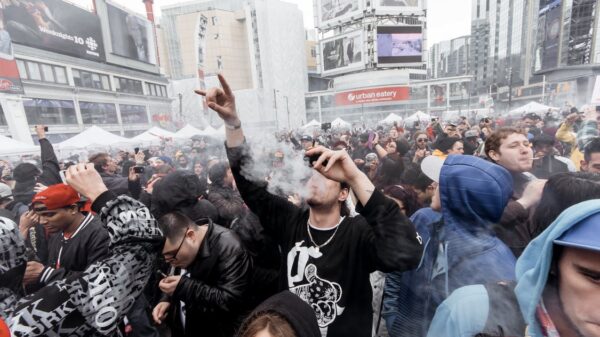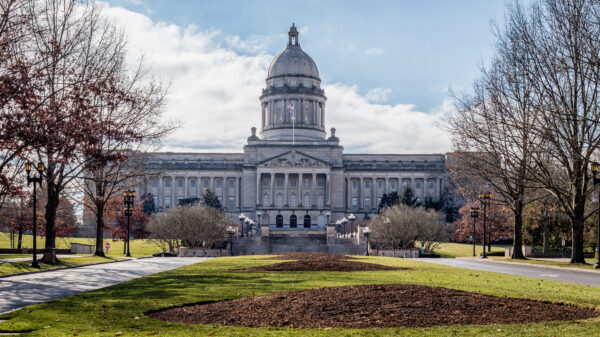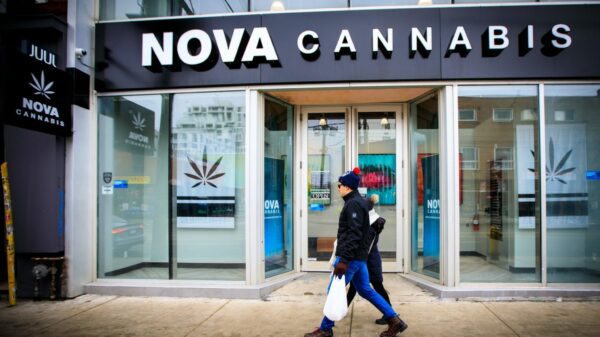Three years after federal cannabis legalization, British Columbia’s cannabis policies are missing the mark on hitting stated policy objectives and should be reevaluated, says a key industry group.
On Tuesday, the BC Chamber of Commerce’s Cannabis Working Group released a report with recommendations to policymakers based on meeting economic and public safety goals.
All of the suggested policy changes involve removing regulatory red tape, which will allow the legal industry to better compete against illicit operators.
In 2018, federal and provincial officials established rules to support three key goals: to keep cannabis out of the hands of youth, to keep profits out of the pockets of criminals, and to protect public health and safety.
But “some of these policies have had unintended consequences or created barriers beyond the scope of their original intentions,” reads the report.

B.C. has lagged behind in per-capita sales compared to less regulated markets of similar sizes like Alberta and Saskatchewan. But sales in B.C. did grow throughout 2021. Chart via BC Chamber of Commerce
“Further, fragmented regulations across provinces and municipalities, bolstered by increased costs attributable to taxation frameworks, delays in licensing, and arbitrary restrictions adversely affect these policy objectives.”
This has led to a state of affairs where B.C. businesses are lagging behind other provinces, and allowing the unregulated sector to thrive, says the Cannabis Working Group.
Read more: Testing pilot finds multiple contaminants in illicit BC bud
Read more: BC launches program to feature Indigenous cannabis products
The group — made up of representatives from different industry subsectors — recommends the following changes in three areas:
- Consumer access
- Allow licensed private retailers to take online orders for cannabis, cannabis products, and accessories.
- Allow for direct delivery by licensed retail stores through common carriers, including app-based services such as Skip the Dishes and Uber Eats.
- Accelerate the work to develop a farm-gate program for early 2022 which will allow licensed producers to retail products directly to consumers.
- Maximize the benefits of future farm-gate and farm-retail programs by ensuring they are available to all licensed micro cultivators, standard cultivators, and nursery licence holders (federal licence holders) in B.C.
- Incorporate cannabis sales and agritourism into rural economic development strategies at the provincial, regional and local government.
- Add an economic mandate for cannabis at a ministerial level.
- Introduce province-wide allowable zoning for cannabis retail, or tie cannabis tax revenue sharing agreements to municipal bylaws that enable cannabis.
- Introduce province-wide retail operator licensing, allowing companies to be screened once, with subsequent applications focused on location-specific criteria
- Regulatory costs and taxation
- Remove the additional 20 per cent provincial tax on cannabis vape products.
- Work with the federal government to create a national excise tax based on a calculation of percentage of sales rather than price per gram.
- Work with the federal government to align the excise stamp program into one national excise stamp.
- Market design
- Remove the limit on, or increase the number of, retail locations per operator to help meet consumer demand for legal cannabis.
- Provide retail operators the flexibility to reallocate product inventory between stores owned by the same licensee.
One of the main barriers to consumer access, and therefore more sales, is a lack of stores in certain areas. These retail “deserts” are created by obstructive zoning policies, the working group says.
The most significant dead zones are in Metro Vancouver, the Capital Region, and the Fraser Valley. Almost 27 per cent of B.C. residents have no access to pot shops in their home municipality. In Metro Vancouver’s 10 largest cities, only half have weed stores.
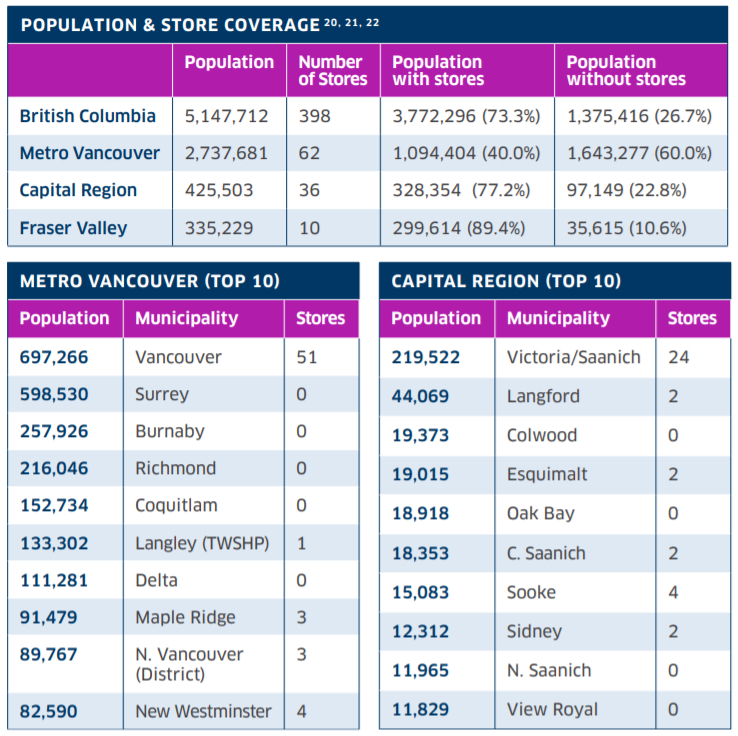
Since B.C. allowed cannabis delivery last July, some shops have been making sales in store-less communities. Chart via BC Chamber of Commerce
Major population centres of Surrey, Richmond, Burnaby, and Coquitlam do not have a single licensed retailer. There are only 10 retailers in the entire Fraser Valley, six of which are in Chilliwack.
“These ‘cannabis deserts’ suppress sales and hinder the government’s ability to meet its objectives of reducing illicit activities related to cannabis and providing access to a quality-controlled supply of cannabis.”
The report also highlights that B.C. has some of the highest consumption rates in Canada, but lower per-capita sales than several other provinces.
nick@mugglehead.com

